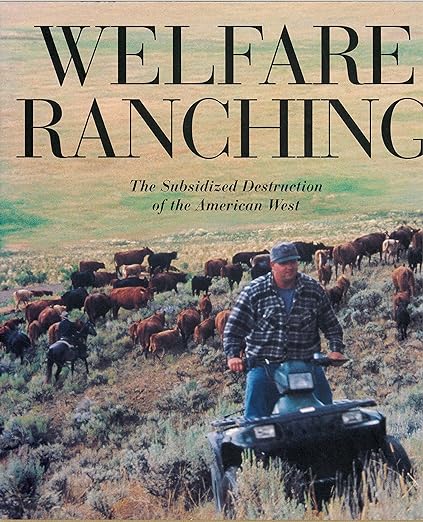Economy
-
The Upper Green River headwaters are in the Wind River Range. Photo by George Wuerthner The 170,000-acre Upper Green River Allotment, located on the Bridger-Teton National Forest in Wyoming, is the largest grazing allotment under Forest Service administration. It is also one of the best wildlife habitats in the West, and it is easily comparable…
-
I published Energy: Overdevelopment and The Delusion of Endless Growth a few years ago. In my research for that book, I gained a couple of insights about energy and its ultimate costs. First, oil and gas are sold on the global market, ultimately setting the price of oil and gas at the pump. Second, energy companies…
-
I recently received a comment on my The Wildlife News article, Audubon Society Embraces Ranching. The commentator suggested if we don’t accept ranching, we will have subdivisions everywhere. I’ve written a lot about this. It is one of the oldest arguments from livestock proponents and most mainstream conservation groups like The Nature Conservancy and others…
-
A recent paper from the Forest Service predicts higher costs for fire fighting. The title: Economic Risks: Forest Service Estimates Costs of Fighting Wildfires in a Hotter Future. The Climate Financial Risk report published by the White House Office of Management and Budget provides some estimates. A middle-of-the-road estimate is a 42% increase in suppression…
-
The seminal work on public lands livestock grazing and its web of impacts, Welfare Ranching – The Subsidized Destruction of the American West is now available for download.
-
The Richfield Ranger District of the Fish Lake National Forest in Utah released its draft reauthorization for grazing the Southern Monroe Mountain allotments in Sevier and Piute Counties. The economic analysis of its reauthorization document is typical of many Forest Service and BLM grazing decisions, whereby the agency emphasizes livestock grazing as an economically…
-
The Deschutes River was once one of the gems of the West. Due to numerous springs, its flow was nearly constant throughout the year. Clean and cold, it supported huge numbers of native trout, and other associated wildlife like the river otter, mink, bald eagles, and Oregon spotted frog. Sadly, the river has been degraded…
-
Montana has a wilderness deficit. People may be surprised to learn that only 3.4 million acres out of the state’s nearly 94 million acres are congressionally designated wilderness under the 1964 Wilderness Act. There are at least 6.3 million more U.S. Forest Service acres that potentially could be designated as wilderness, as well as additional…





